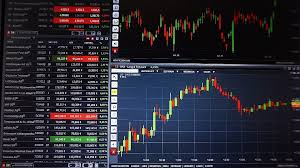
Understanding Forex Trading: Its Meaning and Importance
Forex trading, or foreign exchange trading, refers to the global marketplace where currencies are exchanged. It is the largest financial market in the world, with an average daily trading volume exceeding $6 trillion. The appeal of trading currencies lies in the potential for profit from fluctuating exchange rates. In the context of globalization, Forex trading has become indispensable for businesses, investors, and traders alike. In this article, we will explore the meaning of Forex trading, how it functions, its significance in the global economy, and how beginners can start trading through platforms like forex trading meaning Argentina Brokers.
What is Forex Trading?
The term “Forex” stands for “foreign exchange.” It represents the process of trading one currency for another at an agreed price. Forex trading is conducted over-the-counter (OTC), meaning that it doesn’t have a centralized exchange like a stock market; instead, trading occurs directly between parties, typically through an electronic trading network. The Forex market is open 24 hours a day, five days a week, providing participants with the flexibility to trade at any time.
The Mechanics of Forex Trading
Forex trading involves the buying or selling of currency pairs, which consist of a base currency and a quote currency. For instance, in the currency pair USD/EUR, the USD is the base currency, and the EUR is the quote currency. A trader buys the pair if they speculate that the base currency will strengthen against the quote currency and sells the pair if they believe the opposite will occur.

Key Components of Forex Trading
- Currency Pairs: Currencies are traded in pairs. Major pairs involve the most traded currencies, such as EUR/USD, USD/JPY, and GBP/USD.
- Leverage: Forex brokers often offer leverage, allowing traders to control large positions with a relatively small amount of capital. This can amplify profits but also increases risk.
- Spreads: The difference between the buying price (ask) and selling price (bid) of a currency pair is known as the spread. Brokers earn money through spreads.
- Pips: A pip is a standard unit of measurement in Forex trading that reflects the smallest price move that a currency pair can make.
The Importance of Forex Trading in the Global Economy
The Forex market plays a crucial role in the global economy by facilitating international trade and investment. It enables businesses to convert foreign currencies, making it possible to conduct transactions across borders. As companies expand globally, the ability to transact in different currencies becomes essential. Moreover, Forex trading provides liquidity to the market, ensuring that currencies can be exchanged readily without significant price changes.
Factors Influencing Currency Prices
The prices of currencies are influenced by a variety of factors, including:
- Economic Indicators: Data such as GDP growth, employment rates, and inflation can impact a country’s currency strength.
- Political Stability: Countries with less risk for political turmoil tend to attract more foreign investment, strengthening their currencies.
- Interest Rates: Central banks influence currency values by adjusting interest rates; higher rates offer lenders a higher return relative to other currencies, often leading to currency appreciation.

Getting Started with Forex Trading
For those interested in entering the Forex market, here are some essential steps to consider:
- Educate Yourself: Understand the basics of Forex trading, market analysis, and the factors that influence currency movements. Numerous online resources and courses are available for beginners.
- Select a Broker: Research and choose a regulated Forex broker that meets your trading needs. Look for features such as platform usability, customer support, fees, and available currency pairs.
- Open a Demo Account: Most brokers offer demo accounts where you can practice trading without risking real money. This is a valuable way to get comfortable with the trading platform and develop strategies.
- Develop a Trading Plan: A solid trading plan outlines your goals, risk tolerance, entry and exit strategies, and money management rules.
- Start Trading: Once you feel confident in your abilities, start trading with a small amount of capital. Monitor your trades closely and adjust your strategies as necessary.
Risks Associated with Forex Trading
While Forex trading can be lucrative, it also comes with significant risks. The potential for high profits is often accompanied by high volatility, making it possible to incur substantial losses. Factors such as leverage, market conditions, and emotional decision-making can contribute to these risks. It is essential to approach Forex trading with a realistic mindset, manage risks effectively, and only invest money you can afford to lose.
Conclusion
In conclusion, understanding the meaning of Forex trading is crucial for anyone looking to participate in this dynamic market. With its vast opportunities and risks, Forex trading offers participants the chance to engage in a global financial system while fulfilling economic needs across the world. Whether you are a business looking to conduct international transactions or an individual seeking trading as a source of income, grasping the fundamentals of Forex trading can pave the way for a successful trading journey. By utilizing the right tools, choosing reputable platforms like Argentina Brokers, and committing to ongoing education, traders can navigate the complexities of the Forex market effectively.
